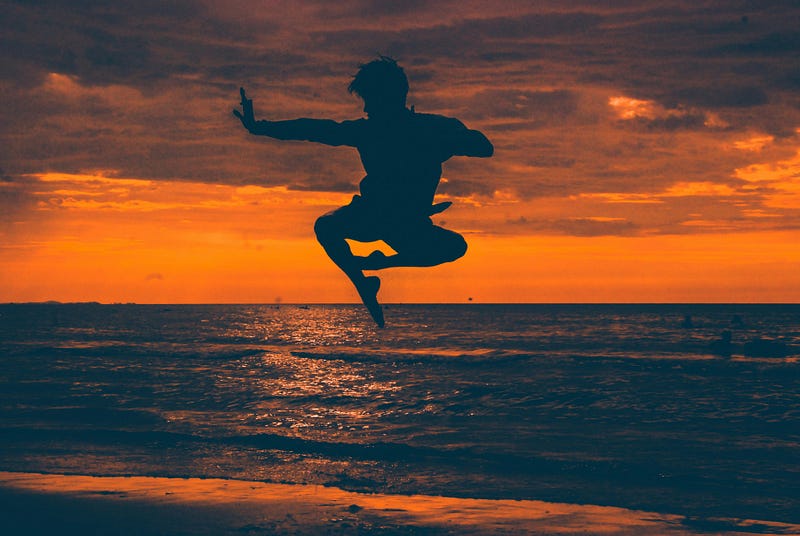Improving My Writing Through Martial Arts: A Surprising Journey
Written on
Chapter 1: Discovering the Unexpected Benefits of Martial Arts
To clarify, my initial motivation for studying martial arts wasn’t to enhance my writing abilities. At that time, writing had become a neglected pastime. I enrolled in a Krav Maga class primarily to learn self-defense techniques, hoping that I would never have to apply what I learned, while also picking up some impressive moves.
As I progressed, I realized that the exciting moves depicted in films are far more intricate in practice than they appear. It took years of dedication, but gradually I improved my coordination, flexibility, resilience, and my capacity to perform under pressure. Currently, I am part of a class that specializes in Filipino martial arts. While my combat skills have certainly advanced, surprisingly, my writing has also benefited. It seems martial arts offer more than just self-defense skills.
A Break from Writing
Writing can often be draining and, at times, disheartening, especially when it transitions from a hobby to a professional pursuit. If you're anything like me—and many writers I've spoken with—your mind is constantly buzzing with ideas, even on days when your fingers refuse to dance across the keyboard.
Sometimes, I crave a respite, particularly during challenging writing days (which we all experience). Watching films or reading can provide some relief, but often it hits too close to home. I find myself dissecting narrative structures or trying to understand a character’s motivations. I can't help but look up unfamiliar words immediately, making it nearly impossible to escape the writing mindset. That is, unless I'm engaged in a martial arts class.
Martial arts provide me with a mental break three times a week, allowing me to return to writing with a clearer focus and a smoother flow. In the heat of executing a complex technique or during sparring, I have no time to overthink or analyze. For that hour, I set aside my insecurities and let my body take over, which positively impacts my writing.
Section 1.1: The Unwinding Nature of Martial Arts
The reason watching a film or reading doesn’t distract me from writing is that my thoughts remain active. Activities like running or walking can help me mull over story ideas, but they don’t quiet the relentless stream of thoughts.
Martial arts are unique because they require me to engage with a partner during practice. When sparring, my attention must be on my opponent. It’s crucial to choose hobbies that demand your full focus, especially if you seek a mental break from your thoughts.
Subsection 1.1.1: The Importance of Physical Well-Being

Fitness experts often state that a strong mind is supported by a strong body. Writing consistently—or at all—becomes a challenge when your body is worn out. Personally, I find it difficult to translate my ideas into written words if I'm fatigued or uncomfortable from prolonged sitting at work. Generating new concepts becomes even more challenging. Neglecting your physical health will reflect in your writing, which is why many writers incorporate exercise into their daily routines. For instance, Stephen King is known to walk regularly. Although my journey began elsewhere, martial arts have now become integral to my health maintenance.
Some writers prefer running, while others find solace in yoga. The key is to select an activity you enjoy. Regular exercise doesn’t have to be daily; even a thirty-minute session can make a significant difference. Don’t let your physical condition deteriorate while you write.
Section 1.2: Gaining Insight into Realistic Combat
All those impressive moves I mentioned earlier? Often, they are just that—impressive but impractical in real-life confrontations. Since starting my martial arts journey, I’ve grown increasingly frustrated with unrealistic fight scenes in movies and books. Characters often have overly wide stances or execute unnecessary, lengthy maneuvers that waste both time and energy—two crucial elements in a fight.
For writers of fantasy, sci-fi, and thrillers, understanding how to depict fights accurately is essential. Poor research can lead to subpar writing. Even if your reader knows only the basics of martial arts, an unreliable fight scene can detract from your work. You want to keep your readers engaged, not lose them.
If you struggle with crafting realistic and thrilling fight scenes, you don’t necessarily have to take martial arts classes (though I highly recommend it). Instead, invest time in thorough research. Observe real fights—MMA, boxing, jujitsu, or whatever best aligns with your narrative. There are numerous non-fiction resources available on martial arts—take advantage of them.
If you prefer visual media, choose series and films where the fighting styles are appropriate for the characters and settings. For instance, adaptations of Lee Child’s Jack Reacher series are excellent examples. The character’s background as a former U.S. Army military policeman informs his fighting style, which incorporates effective techniques like elbow and hammer-fist strikes.
Chapter 2: Embracing the Unexpected Benefits
Reflecting on my journey, I never anticipated that joining a Krav Maga class nearly six years ago would lead to improvements in my writing. It turns out that even unrelated pursuits can significantly enhance your skills as a writer. Seek out activities you enjoy, and embrace them wholeheartedly.